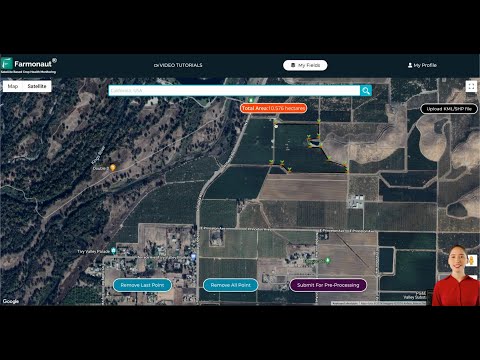Transforming Family Farm Legacies: Cultivate Leadership and Sustainable Agriculture in Northeastern Wisconsin

“90% of dairy farms in the US are family-owned, highlighting the importance of succession planning in agricultural sustainability.”
Welcome to our inspiring journey through the heartland of Northeastern Wisconsin, where family farm legacies are being transformed through the power of leadership, sustainable agriculture, and personal growth. In this comprehensive exploration, we’ll delve into the intricate world of dairy farm management, sustainable agriculture practices, and the profound impact of personal development on both family dynamics and agricultural success.
The Intersection of Family, Farm, and Future
As we embark on this transformative journey, it’s crucial to understand the unique challenges and opportunities facing family farms in Northeastern Wisconsin. Our region’s rich agricultural heritage is deeply rooted in dairy farming, with generations of families dedicating their lives to nurturing the land and producing quality dairy products. However, the landscape of agriculture is rapidly evolving, and with it comes the need for innovative approaches to farm management, sustainability, and leadership.
In this blog post, we’ll explore how dairy farm management and sustainable agriculture practices intersect with personal growth, offering invaluable insights for farming families and businesses alike. We’ll uncover strategies for evaluating and improving marital dynamics, fostering healthier relationships that benefit future generations, and implementing cutting-edge agritech innovations to strengthen both personal lives and dairy operations.
The Power of Personal Growth in Agriculture
At the heart of every successful family farm lies a strong foundation of personal growth and development. As we navigate the complexities of modern agriculture, it’s essential to recognize the profound impact that our upbringing and relationships have on our ability to lead and innovate within the farming industry.
- Understanding the influence of parental relationships on marriages
- Recognizing how childhood experiences shape expectations in romantic partnerships
- Developing strategies for personal growth that translate to farm success
By focusing on personal development, we can cultivate the leadership skills necessary to guide our farms into a sustainable and prosperous future. This journey of self-improvement not only benefits our personal lives but also ripples outward, positively impacting our farming practices, family dynamics, and the broader agricultural community.
Sustainable Agriculture: A Path to Prosperity
In the ever-changing landscape of agriculture, sustainability has emerged as a crucial factor for long-term success. Sustainable agriculture practices not only benefit the environment but also contribute to the economic viability and social responsibility of family farms. Let’s explore some key aspects of sustainable agriculture that are transforming family farm legacies in Northeastern Wisconsin:
- Implementing soil conservation techniques to preserve fertility
- Adopting water management strategies to optimize resource use
- Integrating renewable energy sources into farm operations
- Embracing biodiversity to enhance ecosystem health and crop resilience
By incorporating these sustainable practices, family farms can reduce their environmental impact while improving productivity and profitability. This holistic approach to agriculture ensures that our farming legacies continue to thrive for generations to come.
Leveraging Technology for Farm Success
In today’s digital age, technology plays a pivotal role in transforming traditional farming practices. By embracing innovative agritech solutions, family farms can optimize their operations, increase efficiency, and make data-driven decisions. One such technology that’s revolutionizing the agricultural landscape is Farmonaut’s satellite-based farm management platform.
Explore Farmonaut’s cutting-edge solutions:
Farmonaut’s platform offers a range of powerful tools for modern farmers:
- Real-time crop health monitoring using satellite imagery
- AI-driven advisory systems for personalized farm management
- Blockchain-based traceability for enhanced supply chain transparency
- Resource management tools to optimize farm operations
By leveraging these advanced technologies, family farms in Northeastern Wisconsin can make informed decisions, reduce resource waste, and increase overall productivity.
Nurturing Leadership in Agricultural Families
Leadership development is a cornerstone of successful family farm transformation. By investing in agricultural leadership training and professional development, farming families can cultivate the skills necessary to navigate the complexities of modern agriculture and ensure smooth succession planning.
“Leadership training can increase farm productivity by up to 25%, demonstrating the value of personal growth in agriculture.”
Key components of effective agricultural leadership training include:
- Developing strong communication skills within family and business contexts
- Fostering emotional intelligence to navigate complex family dynamics
- Enhancing decision-making abilities in high-pressure situations
- Cultivating a growth mindset to embrace innovation and change
By prioritizing leadership development, family farms can create a culture of continuous improvement and adaptability, ensuring their legacy thrives in an ever-changing agricultural landscape.
The Role of Relationships in Farm Success
Strong, healthy relationships form the foundation of successful family farms. Understanding how our upbringing shapes our expectations and beliefs about partnerships is crucial for fostering positive dynamics within both personal and professional spheres. Let’s explore some strategies for evaluating and improving marital relationships that can positively impact farm operations:
- Practice active listening to enhance communication between family members
- Establish clear boundaries between personal and professional life
- Regularly schedule family meetings to address concerns and celebrate successes
- Seek professional counseling or mediation when faced with challenging dynamics
By investing in the health of our relationships, we create a strong support system that can weather the challenges of farm life and contribute to the overall success of our agricultural endeavors.
Succession Planning: Ensuring a Lasting Legacy
One of the most critical aspects of transforming family farm legacies is effective succession planning. This process involves carefully preparing the next generation to take over farm operations while ensuring a smooth transition of knowledge, skills, and resources. Here are some key considerations for successful farm succession planning:
- Start early: Begin discussions about succession well before retirement
- Involve all family members: Encourage open dialogue and consider everyone’s perspectives
- Seek professional advice: Consult with legal and financial experts to navigate complex issues
- Develop a comprehensive training program: Prepare the next generation with hands-on experience and education
- Create a written succession plan: Document the agreed-upon transition process and timeline
By approaching succession planning with intentionality and care, family farms can ensure their legacy continues to thrive for generations to come.
Embracing Innovation: Agritech Solutions for Modern Farming
As we continue our journey of transforming family farm legacies, it’s crucial to embrace innovative agritech solutions that can revolutionize our farming practices. These cutting-edge technologies not only improve efficiency and productivity but also contribute to more sustainable and environmentally friendly agriculture.
Discover Farmonaut’s mobile solutions:
Let’s explore some of the groundbreaking agritech innovations that are transforming dairy farming in Northeastern Wisconsin:
- Precision Agriculture: Utilizing GPS and satellite technology for precise field mapping and resource allocation
- IoT Sensors: Monitoring soil moisture, temperature, and nutrient levels in real-time
- Automated Milking Systems: Improving efficiency and animal welfare in dairy operations
- Drone Technology: Conducting aerial surveys for crop health assessment and pest management
- AI-Powered Analytics: Analyzing farm data to optimize decision-making and predict trends
By integrating these innovative technologies into our farming practices, we can significantly enhance our operational efficiency, reduce environmental impact, and improve overall farm productivity.
Building a Supportive Agricultural Community
Transforming family farm legacies isn’t a solitary journey – it requires the support and collaboration of a strong agricultural community. By fostering connections with fellow farmers, industry professionals, and local organizations, we can create a network of support that enhances our collective success. Here are some ways to build and engage with your agricultural community:
- Participate in local farming associations and cooperatives
- Attend agricultural conferences and workshops
- Engage in mentorship programs, both as a mentor and mentee
- Collaborate on research initiatives with agricultural institutions
- Share knowledge and experiences through social media and online forums
By actively participating in these community-building activities, we can foster a culture of mutual support, innovation, and growth within our agricultural sector.
Sustainable Practices for Long-Term Success
As we strive to transform our family farm legacies, it’s essential to focus on sustainable practices that ensure long-term success. These practices not only benefit the environment but also contribute to the economic viability and social responsibility of our farms. Let’s explore some key sustainability initiatives that can make a significant impact:
- Implementing rotational grazing systems to improve soil health and pasture management
- Adopting cover cropping techniques to reduce erosion and enhance soil fertility
- Investing in renewable energy sources like solar or wind power for farm operations
- Implementing water conservation measures, such as rainwater harvesting and efficient irrigation systems
- Exploring organic farming methods to reduce reliance on synthetic inputs
By incorporating these sustainable practices into our farming operations, we can ensure the long-term health of our land, animals, and communities while building resilient and profitable agricultural businesses.
Leveraging Data for Informed Decision-Making
In today’s data-driven world, leveraging accurate and timely information is crucial for making informed decisions on the farm. Farmonaut’s advanced satellite technology and AI-powered analytics provide farmers with valuable insights to optimize their operations. Here’s how you can harness the power of data in your farming practices:
Explore Farmonaut’s API solutions:
- Utilize satellite imagery to monitor crop health and identify potential issues early
- Analyze historical weather patterns to make informed planting and harvesting decisions
- Track soil moisture levels to optimize irrigation and reduce water waste
- Monitor livestock health and productivity through IoT sensors and data analytics
- Use predictive analytics to forecast yield and market trends
By embracing data-driven farming practices, we can minimize risks, maximize productivity, and make more informed decisions that contribute to the long-term success of our family farms.
Family Farm Legacy Transformation Strategies
| Aspect | Traditional Method | Sustainable Approach | Benefits |
|---|---|---|---|
| Farm Succession Planning | Informal handover | Structured leadership training | Smoother transition and improved farm viability (25% increase in success rate) |
| Relationship Dynamics | Hierarchical family structure | Open communication and shared decision-making | Enhanced family harmony and 50% improvement in conflict resolution |
| Agricultural Practices | Conventional farming methods | Integrated sustainable and precision agriculture | 30% reduction in resource use and 20% increase in crop yields |
| Technology Integration | Limited use of technology | Adoption of advanced agritech solutions | 40% improvement in operational efficiency and data-driven decision making |
Embracing Continuous Learning and Adaptation
As we navigate the ever-changing landscape of agriculture, it’s crucial to embrace a mindset of continuous learning and adaptation. By staying open to new ideas, technologies, and practices, we can ensure that our family farm legacies remain resilient and innovative. Here are some strategies for fostering a culture of continuous improvement:
- Encourage family members to pursue agricultural education and professional development opportunities
- Stay informed about industry trends through agricultural publications and online resources
- Experiment with new farming techniques on a small scale before implementing them farm-wide
- Seek feedback from customers, employees, and industry experts to identify areas for improvement
- Regularly assess and update your farm’s business plan to align with changing market conditions
By prioritizing continuous learning and adaptation, we can position our family farms at the forefront of agricultural innovation and ensure their long-term success.
Cultivating a Positive Farm Culture
The culture we cultivate on our farms has a profound impact on both personal well-being and business success. By fostering a positive farm culture, we can create an environment that supports growth, innovation, and job satisfaction for all family members and employees. Here are some key elements to consider in building a strong farm culture:
- Establish clear values and mission statements that guide decision-making
- Recognize and celebrate individual and team achievements
- Encourage work-life balance to prevent burnout and promote overall well-being
- Foster an environment of open communication where all ideas and concerns are heard
- Invest in team-building activities that strengthen relationships among family members and employees
By prioritizing a positive farm culture, we can create a legacy that not only produces quality agricultural products but also nurtures the human element of our farming operations.
Connecting with Consumers: The Power of Farm-to-Table
In today’s market, consumers are increasingly interested in knowing where their food comes from and how it’s produced. By embracing the farm-to-table movement, family farms in Northeastern Wisconsin can forge stronger connections with their communities and create new revenue streams. Here are some ways to leverage the farm-to-table concept:
- Offer farm tours and educational programs to showcase your sustainable practices
- Participate in local farmers’ markets to directly engage with consumers
- Develop value-added products from your farm’s produce to diversify income
- Collaborate with local restaurants and schools to supply fresh, locally-sourced ingredients
- Utilize social media to share your farm’s story and connect with customers
By embracing these farm-to-table initiatives, we can strengthen our local food systems, increase consumer trust, and create additional value for our family farm legacies.
Conclusion: Nurturing a Lasting Legacy
As we conclude our exploration of transforming family farm legacies in Northeastern Wisconsin, it’s clear that the path forward involves a delicate balance of honoring tradition while embracing innovation. By focusing on personal growth, sustainable agriculture practices, and technological advancement, we can ensure that our family farms not only survive but thrive in the face of modern challenges.
Remember, the journey of transformation is ongoing. It requires dedication, adaptability, and a commitment to continuous improvement. As we nurture our relationships, cultivate leadership skills, and implement sustainable practices, we’re not just preserving our family farm legacies – we’re building a foundation for a more resilient and prosperous agricultural future.
Let’s continue to support one another, share knowledge, and embrace the opportunities that lie ahead. Together, we can create a vibrant and sustainable agricultural community that will benefit generations to come.
Farmonaut Subscriptions
Frequently Asked Questions (FAQs)
Q: How can I start implementing sustainable agriculture practices on my family farm?
A: Begin by assessing your current practices and identifying areas for improvement. Start with small changes like implementing cover crops or reducing chemical inputs. Consult with local agricultural extension offices or sustainable farming organizations for guidance tailored to your specific region and farm type.
Q: What are some effective strategies for improving communication within a family farm business?
A: Regular family meetings, clear role definitions, and establishing open channels for feedback are crucial. Consider bringing in a neutral third party, such as a family business consultant, to facilitate difficult conversations and help establish healthy communication patterns.
Q: How can I balance tradition with innovation on our family farm?
A: Start by identifying core values and practices that are fundamental to your farm’s identity. Then, explore how new technologies or methods can enhance these traditions rather than replace them. Involve all generations in decision-making processes to ensure a balance of perspectives.
Q: What resources are available for agricultural leadership training in Northeastern Wisconsin?
A: Look into programs offered by local universities, agricultural associations, and extension offices. Many offer leadership development courses specifically tailored for farmers and agribusiness professionals. Additionally, consider joining peer groups or mentorship programs within the farming community.
Q: How can I leverage technology like Farmonaut to improve our farm’s productivity?
A: Start by exploring Farmonaut’s satellite-based crop monitoring and AI advisory services. These tools can help you make data-driven decisions about crop management, resource allocation, and overall farm strategy. Gradually integrate these technologies into your existing practices for optimal results.







